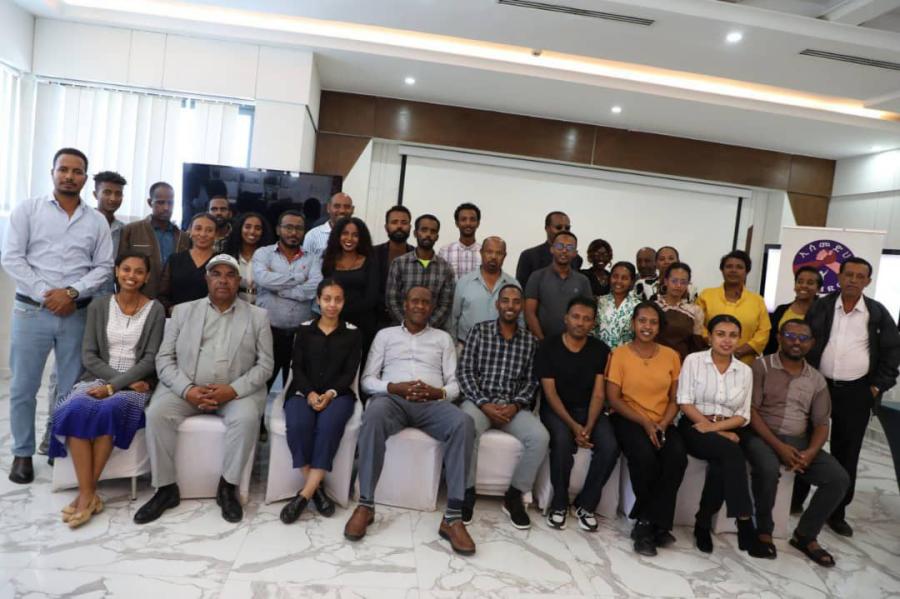Rex Howitt is a Missouri farmer. For the past two years Rex has planted corn. Unwittingly he has planted the seeds of destruction for tribal people in Guatemala and Ethiopia.
The US government buys part of Rex's corn. It then sells much of this corn to other nations. Part of the corn, however, is given for refugee, famine and disaster relief.
While some of the corn goes directly to these crisis areas from the US, part of it is given through the UN's World Food Program. The US provides 20% of the World Food Program and increasingly food is being used as a political weapon throughout the world.
The Guatemalan and Ethiopian governments are using UN-provided grain to regroup, resettle and dismantle numerous indigenous cultures. Although diametrically opposed in their political philosophies, these two governments both feel the need to destroy the distinct ethnic groups that make up a majority of the population in each of the countries.
In Guatemala a born-again military dictator has forced indigenous people to organize into civil patrols and undertake public work projects to show their loyalty to his central government. If these citizens refuse to take part in these programs they are considered subversive and can be shot. If they consent to take part in them, they are given corn.
Government programs are designed to force indigenous communities to take part in the "beans or bullets" program. Most highland Indian communities are not allowed to produce enough corn to feed themselves. In the past year, the Guatemalan military has burned crops, harvested them for itself or harassed individual farmers' attempts to plant their more distant, fertile plots. In addition, government military activities have restricted travel in the country, including to distant plantations where, in the past, Indians supplemented their agricultural production with wage-labor.
While the US has severely restricted arms sales to Guatemala, our government is both directly and indirectly supplying food - the ultimate weapon - to the Guatemalan government for use in programs which have already severely disrupted Mayan communities throughout the highlands and which make Indian citizens slaves in their own lands.
In Ethiopia, a socialist junta, the Derg, has consolidated its power since 1976 through the collectivization of property, the banning of ethnic-based political groups the harassment of all religious groups, and the forced education/rehabilitation of the country's population. As a result of these activities 10 percent of the population have fled to other countries - today one out of the world's four refugees is from Ethiopia.
Areas defined as strategic, either because of their military significance or their fertility, have been cleared of indigenous peoples - who often become refugees - and settled with people who, because of their ethnic affiliation, are considered more loyal to the current regime. In 1981, the government received funds from the European Economic Commission to resettle such "unoccupied" lands.
The Ethiopian government has recently applied to the World Food Program for food to relieve famine conditions in areas that have been disrupted first by both government resettlement programs. Independent observers doubt that the government controls more than 30-40 of these areas and feel that food will be used by the government to undermine local, ethnic-based resistance movements. In 1981, in a similar famine situation, the Swedish government discontinued assistance to Ethiopia when officials were convinced that grain had been sold to the USSR to pay for arms.
Ethiopia, through the UNHCR, is also seeking food to entice refugees to return voluntarily from Djibouti. The returnees will be settled in the areas from which they fled, but will not be given the lands from which they were originally driven, often forcibly. Instead returnees will be resettled on collective farms where they will work for government loyalists who now control the lands the refugees once owned.
According to an official in the Food For Peace Program, the US would not supply the Ethiopian government with any food for development programs. But the US government has already given Ethiopia famine assistance through the Catholic Relief Service and "would not respond unfavorably to a food request from the UNHCR."
Rex Howitt, as a farmer for some 40 years, understands that natural disasters can create food shortages and is not opposed to his government giving humanitarian assistance to alleviate such conditions.
How many of us, however, condone the use of food, whether provided by US or UN agencies, as the final weapon in a long line of coercive programs to break the spirit, indeed the culture, of indigenous people?
Article copyright Cultural Survival, Inc.

